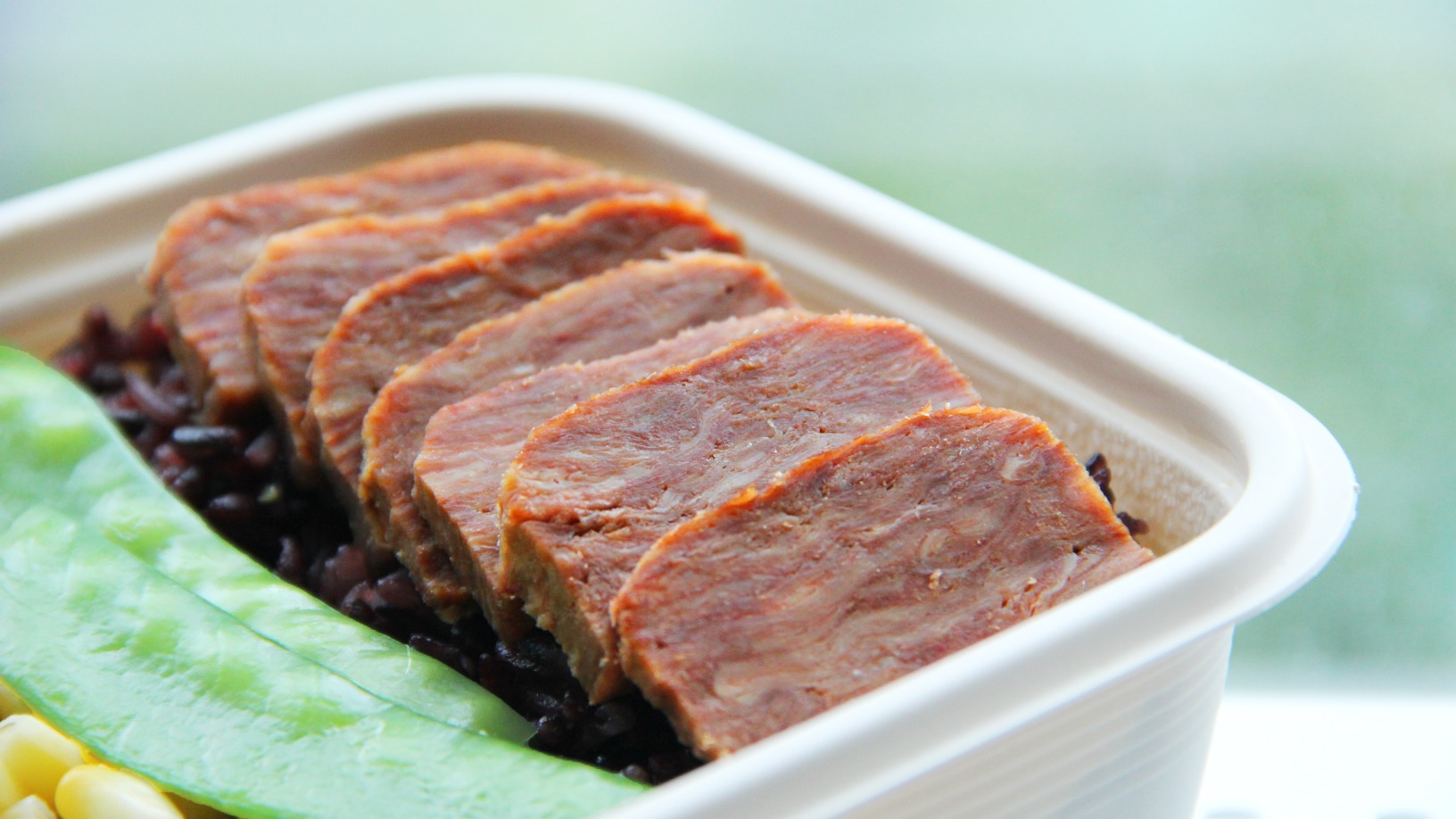About 10 years ago, at Jiangnan University in China, post-graduate student Wang Yi saw some students creating plant-based burgers and sausages in a laboratory while he was pursuing a master’s in food technology and engineering. The students tried to sell their alt-meat idea to local businesses, but no one was interested.
In May 2019, Beyond Meat’s successful IPO in New York rekindled Wang’s interest in plant-based meat. Within months, he launched Grain Meat in December 2019 in Wuxi, a city in southern Jiangsu province in eastern China.
At that time, Chinese alt-meat startups mostly offered minced meat to be processed into different types of food like burger patties, meatballs and sausages. However, the use of minced meat is generally quite limited in Chinese cuisine, compared to whole cuts of meat which are used in China for many popular dishes such as steaks, cold dishes, barbecues and steamboats. So Grain Meat decided to focus on that.
"Consumers want cuts in which muscle fibers can be seen,” said Wang, now the CEO, in a recent interview with CompassList. “We saw the gap and decided to create plant-based whole cuts instead of minced meat.”
In May this year, Grain Meat raised nearly RMB 10m seed funding from Innoangel Fund, a Beijing-based angel investor. The funds will be used to boost R&D for further product development, marketing and supply chain operations.
“Before investing in us, Innoangel Fund had reviewed many types of plant-based meat products in the market, and our products performed the best in its blind sample testing,” Wang said.
Almost real, lower price
According to Wang, creating plant-based whole cuts of meat is not an easy task, as the process is much more technically complicated than making plant-based minced meat.
Like most plant-based meat producers, Grain Meat first transforms the globular structure of the plant proteins into a fibrous layered structure using techniques like extrusion. But the startup goes one step further to recreate the texture of whole cuts of meat. It has developed a proprietary technique called fiber weaving and has designed the machinery for it.
“Similar to a 3D printer, our self-developed machinery works more like a loom,” Wang said. "We can weave the analogues of connective tissues and adipose tissues into the meat, giving the texture and even grain of real meat to the final products,” he added.

The company’s in-house R&D team has developed an odor molecule removal technique to get rid of the beany flavor, a common problem that is usually resolved by adding flavorings like black pepper. “We don’t have to use many flavorings to mask the flavor off-notes,” Wang said.
Grain Meat offers its products at lower prices to further differentiate its brand. According to Wang, its plant-based beef is priced at RMB 20–50 per kg compared to natural beef at RMB 50 per kg in the wholesale market and cooked beef at RMB 80 per kg.
According to the company, its production plant in Wuxi is the world’s first factory to manufacture plant-based whole cuts of meat. The facility, with an annual capacity of 3,000 tons, started operations on June 4.
Grain Meat’s full range of soy-based alt-meat products, including chicken and pork, will mainly target business clients. The startup will also be selling directly to consumers on e-commerce platforms. The products are expected to be served at over 500 F&B outlets by the end of 2021.
Foodtech expertise
Besides Wang, the other two founding team members also have solid technical backgrounds. R&D director Wang Zhaojun, who has a PhD in food process engineering from Wageningen University in the Netherlands, has been engaged in plant-based meat R&D for many years.
The company’s chief scientist Chen Jie, a professor at Jiangnan University’s School of Food Science and Technology, is an expert in food processing that focuses on translating technological innovations into mainstream manufacturing. Chen is also experienced in factory planning, production processes and techniques to help companies save time during factory construction.
Wang’s alma mater Jiangnan University is the world’s top university for food science and engineering. “The university is very well equipped, with over RMB 300m worth of equipment and food-related labs of about 80,000 sqm in total,” Wang said. “It’s the state-of-the-art food tech research platform in China.”
"Unlike some companies that would pay a university six or seven-digit RMB in funding to create a [plant-based] burger, we would like to work with the university more closely,” Wang added.
In 2019, Grain Meat established a strategic partnership with State Key Laboratory of Food Science & Technology at Jiangnan University for joint projects in plant-based meat R&D and to share resources at the local university. Early this year, the startup announced an investment of RMB 5m for the construction and operation of the Grain Meat-Jiangnan University Joint Research Center.
“Our R&D staff will do some work at the university and co-operate with the professors, which also helps us to save R&D costs,” Wang said. ”Such efforts will help Grain Meat offer better quality and even more affordable plant-based meat products to appear on the dining table of every household one day."











